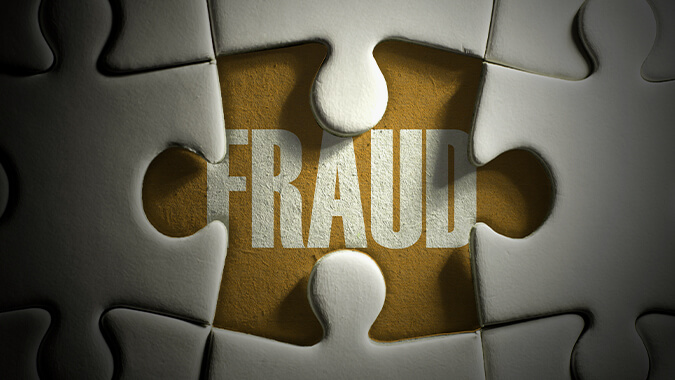Just because your marriage is going bust doesn't mean your net worth has to - Asset valuation for equitable distribution during a divorce
- Published
- Jul 1, 2014
- By
- Hubert Klein
- Share
Reprinted with permission from the June issue of Next Divorce.
If you’re a sentimental romantic, you may not like what you’re about to read. But with approximately 50 percent of all marriages ending in divorce in the United States, you should prepare your finances for the better-than-even chance that your spouse isn’t the person you’ll grow old with.
According to a new study by University of Maryland sociologist Philip N. Cohen, as opposed to a decline in the economy in 2008 that saw a corresponding drop in the divorce rate, the current scenario shows that divorce rates in the U.S. are increasing.
One reason that has been cited is that couples may be in a position to once again be able to afford to pull the plug on a failed marriage thanks to the slowly growing, but rebounding, economy.
As a result, the assets in a marital partnership need to be valued and divided in case of divorce. However, to divide these assets properly, each asset must be assigned a dollar value. The point in time at which an asset is assigned a dollar value is important and is commonly referred to as the valuation date.
The process may sound straightforward: pick a date, appraise each item as on that date, and bingo! Case settled. However, like most other aspects of divorce, the determination of valuation dates is complicated, and as a result, the valuation process can be quite difficult.
In many divorce situations, a closely held business interest is one of the major assets of the marital estate.
Accordingly, a valuation of that ownership interest is needed. It sounds simple enough, but in reality, this marital asset is often an area where the divorcing parties strongly disagree.
Typically, the main issues that are disputed revolve around the value of the business interest and the amount that the non-owner spouse should receive as part of the equitable distribution upon settlement or trial judgment.
In many situations, the business owner spouse works in the business and performs certain executive, administrative, and operational duties. The owner spouse has an equity interest in the business and its value is included in the marital estate.
Generally, the owner spouse does not want the non-owner spouse to have an equity interest in the business post-divorce and, therefore, the owner spouse “purchases” the equity interest of the non-owner spouse through the process of equitable distribution. The job of a business valuation expert is to determine the value of the business for equitable distribution.
Business Valuation Criteria
In practice, business valuation is more an art than an exact science. While the theory involved in the business valuation process is typically similar to non-divorce valuations, there are many nuances involved in performing valuations in a divorce engagement.
Most people refer to a business valuation utilizing a standard known as “fair market value.” In basic terms, this refers to the value a “willing buyer” would pay a “willing seller” in a “free and open market” where both buyer and seller are in possession of all material facts, with neither forced to make a deal.
In brief, “fair market value” is the value reached in a general “run-of-the-mill” economic transaction between interested individuals as a result of negotiations where all the facts are known.
Business valuations for divorces are predominantly undertaken in the same manner as any other business valuation, but often the valuator must have a different perspective. These valuations may include the following considerations:
- What is the appropriate valuation date?
- Is the business being valued as a “going concern” or one that is principally providing an income?
- What is the standard of value at which it is being assessed—fair value, market value, asset value, or some other standard?
- What impact do the opposition’s holdings have on the cash flow of the business for valuation purposes?
While many people understand the concept of fair market value, this is not the standard of value applied in many divorce matters. As a result, there can be confusion among the divorcing couples.
The state laws and statutes of the jurisdiction in which the divorce action takes place govern the process of divorce. In addition, unlike a fair market valuation, there is no hypothetical seller or buyer, and generally, no sale of business takes place. As a result, many states have adopted standards of value that differ significantly from fair market value.
Various states use fair value, investment value, value to holder, or intrinsic value. Even more confusing is that, in different states, these terms can have different meanings. This causes a lot of confusion for divorcing couples, who are already in an emotional state of flux and anxiety.
Therefore, it is extremely important that the divorcing couples, their attorneys, and the valuation experts are all well informed at the beginning of the process.
With most business valuations, the process starts with an analysis of a number of elements that are recognized by the appraisal profession to be of particular relevance in valuing any privately held company. Many valuation professionals refer to Internal Revenue Ruling 59–60, which lists the following factors to be considered:
- Nature and history of the business;
- General economic outlook and specific prospects for the industry;
- Net worth and financial condition;
- Earning capacity;
- Dividend paying capacity;
- Extent of goodwill, if any;
- Size of the block of stock being valued, especially if it represents a majority or minority interest;
- Whether the stock in question is voting or non-voting;
- Stock prices of comparable public companies, if any;
- Sale(s) of company stock at or near the valuation data;
- Limitations or restrictions on the stock, such as on transfer, dividends, etc.; and
- Sale(s) of stock in comparable closely held companies, if any (implied).
The business owner spouse or the business generally supplies the above information directly. It is typically requested through a process called “discovery.” The discovery process is when the divorcing couple exchanges information about their personal and business finances. A request for information is generally sent to the business or business owner spouse and the information is copied or made available to the valuation expert for review.
Once the valuation experts receive the information, they begin an analysis process that considers the above factors and also requires them to use their professional judgment.
There are three generally accepted approaches to value any asset, business, or business interest:
- The asset approach;
- The income approach, and
- The market approach.
While there are no other approaches to value, there are numerous methods that the valuation expert may consider within each of these approaches. Each approach has inherent strengths and weaknesses and some provide a more reliable conclusion of value than others, depending upon the individual circumstances of each case. Generally, the valuation expert should consider all three approaches, but often all three can’t be applied.
The basic premise of valuation is that when an individual makes the decision to acquire, or invest in, a business of any kind, there is an expectation of a return on that investment. The return on investment can be measured by:
- Projecting or estimating future earnings or
- Estimating future pre-tax or after-tax cash flow.
No matter which method is chosen, the principles are basically identical: future operating performance is used to determine a hypothetical return on investment. These projected future earnings are the main factor in determining business value.
In most valuation engagements, in or out of court, the valuation expert will deliver an opinion on a specific value. In the context of divorce, it is common to see a valuation expert provide a preliminary range of values prior to the issuance of a formal opinion of the value report, for two reasons:
- Sometimes it is easier for divorcing spouses to agree on a range of values rather than on a specific dollar amount; and
- A number within the range of values can be used in conjunction with negotiating a desired level of spousal support.
An important contribution that the valuation expert can make to this difficult and highly emotional process is to produce a preliminary report that is open to review and criticism by the divorcing couple and their respective counsel.
This gives either spouse an opportunity to make a persuasive case that the expert has misunderstood or erred in some aspect of the valuation process, and that revisiting the issue(s) could prove useful to all the parties concerned.
As the expert is an advocate for his or her valuation opinion and not an advocate for either side, the objective of open communication within the process and conclusion regarding valuation is generally beneficial, especially when the clients understand the work done and develop an understanding of the process.
Some of the biggest challenges in hiring a valuation expert involve time, cost, and the ability to arrive at a fair business value. The process can take many hours for even an experienced expert to arrive at a conclusion. In the end, many divorcing parties will likely have questions about how a number was derived, leading to more time taken and increased cost, as materials are reviewed and a determination regarding the results is arrived at.
To divorcing couples, the world of business valuation is confusing and downright scary. The divorce process and the fear of the unknown, of life after divorce, intimidate them. However, with the help of a good attorney and a trusted business valuation specialist, the divorce process can become less intimidating and more an opportunity for the divorcing spouses to become educated and involved in the process.
The valuation expert can assist the divorcing couple in working together to agree on a value for the business, one that they understand is balanced and is fair. While many times there may be disagreement at the end result of the valuation, at the very least, the parties will be armed with the knowledge to make an informed judgment on whether to settle or go to trial.
What's on Your Mind?
Start a conversation with Hubert
Receive the latest business insights, analysis, and perspectives from EisnerAmper professionals.











